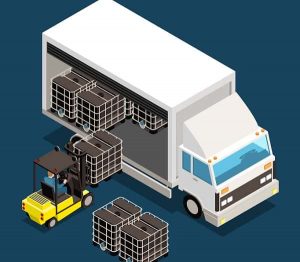Introduction: Understanding the Dynamics of Refrigeration Logistics
Refrigeration logistics play a pivotal role in ensuring the safe and efficient transportation of temperature-sensitive goods, from food products to pharmaceuticals. However, this specialized branch of logistics comes with its own set of challenges, ranging from maintaining precise temperature control to navigating regulatory requirements. In this article, we delve into the key challenges faced by refrigeration logistics providers and explore innovative solutions to overcome them.
The Complexities of Refrigeration Logistics
Refrigeration logistics involve the transportation and storage of perishable goods within controlled temperature environments. Unlike conventional logistics, where the focus is primarily on timely delivery, refrigeration logistics demand meticulous attention to temperature management throughout the supply chain. Any deviation from the required temperature range can compromise the quality and safety of the goods, leading to significant losses for businesses and potential health risks for consumers.
Temperature Control and Monitoring
One of the primary challenges in refrigeration logistics is maintaining precise temperature control throughout the transportation and storage process. Fluctuations in temperature can occur due to various factors, including weather conditions, equipment malfunction, or human error. To address this challenge, advanced temperature monitoring systems and sensors are deployed at every stage of the supply chain. These devices provide real-time data on temperature conditions, allowing logistics providers to take proactive measures to prevent deviations and ensure product integrity.

Challenges in Refrigeration Logistics
Despite technological advancements, refrigeration logistics face several challenges that require innovative solutions to mitigate risks and enhance efficiency.
Energy Consumption and Environmental Impact
Refrigeration systems consume a significant amount of energy, contributing to both operational costs and environmental impact. Traditional refrigerants used in cooling systems are often potent greenhouse gases, exacerbating climate change. To address this challenge, logistics providers are exploring alternative refrigeration technologies, such as natural refrigerants and energy-efficient systems. By investing in sustainable refrigeration solutions, businesses can reduce their carbon footprint while lowering operational expenses.
Infrastructure Limitations
Inadequate infrastructure poses a significant challenge to refrigeration logistics, particularly in remote or underdeveloped regions. The lack of refrigerated storage facilities and reliable transportation networks can lead to delays and temperature excursions, jeopardizing the quality of perishable goods. Addressing this challenge requires investments in infrastructure development, including the construction of cold storage warehouses and the expansion of refrigerated transportation networks. Additionally, the use of mobile refrigeration units can provide temporary storage solutions in areas with limited infrastructure.
Innovative Solutions in Refrigeration Logistics
Despite the challenges, innovative solutions are emerging to address the complexities of refrigeration logistics and enhance operational efficiency.
Advanced Data Analytics
Advanced data analytics and predictive modeling are revolutionizing refrigeration logistics by providing insights into temperature trends and potential risks. By analyzing historical data and real-time sensor readings, logistics providers can identify patterns and anticipate issues before they occur. This proactive approach allows for timely interventions, such as adjusting temperature settings or rerouting shipments, to prevent quality deviations and ensure on-time delivery.
Internet of Things (IoT) Integration
The integration of Internet of Things (IoT) technology into refrigeration systems is enabling remote monitoring and control of temperature conditions. IoT-enabled sensors embedded in refrigerated containers and storage facilities transmit data to centralized platforms, allowing for real-time visibility and management of the cold chain. This level of automation enhances efficiency, reduces the risk of human error, and ensures compliance with temperature requirements throughout the supply chain.
Conclusion: Navigating the Challenges of Refrigeration Logistics
Refrigeration logistics present unique challenges that require innovative solutions to ensure the safe and efficient transportation of perishable goods. By addressing issues such as temperature control, energy consumption, and infrastructure limitations, logistics providers can optimize their operations and deliver superior service to customers. Through the adoption of advanced technologies and a commitment to sustainability, the future of refrigeration logistics holds promise for enhanced efficiency, reduced costs, and minimized environmental impact.

Recent Comments